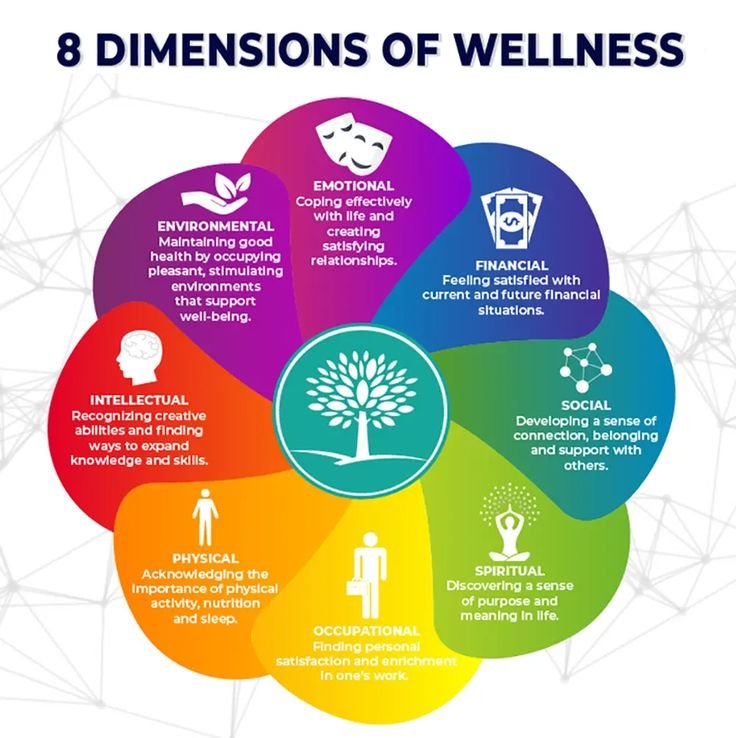INTRODUCTION:
The concept of health as a balance between a person and the environment, the unity of soul and body. Health is a state of complete physical and social well-being and not merely the absence of disease or infirmity. The enjoyment of the highest attainable standard of health is one of the fundamental rights of every human being without distinction of race, religion, political belief, economics or social condition.
CONCEPT OF HEALTH:
Health is evolved over the centuries as a concept of individual concern to world wide social goal and encompasses the whole quality of life. The natural origin of disease, was the backbone of the perception of health in ancient Greece. In the middle-ages health perception was strongly influenced by religion and the Church. Health is a common theme in most cultures. All communities have their concept of health, as a part of their culture. Oldest definition in all communities is “absence of disease”. Traditionally, health has been viewed as an “absence of disease”, and if one was free from disease, then the person was considered healthy, this is “biomedical concept”.
TYPES OF HEALTH:
There are so many types of health such as mental health, spiritual health, financial health, environmental health, physical health, social health, occupational health, emotional health etc. The World Health Organization (WHO) defines health as the balance of mental, physical and social health, also known as the health triangle. Having a good balance in all three areas is essential to living a healthy lifestyle.
MENTAL HEALTH:
Almost everyone experiences anxiety and stress at some point in their life, even now a days small kids are also patient of anxiety and stress. It effects how we think, feel and act. It also helps determine how we handle stress, relate to others, and make healthy choices. Mental health is important at every stage of life, from childhood and adolescence through adulthood. Our bodies and minds are not separate, so it’s not surprising that mental ill health can affect your body. Depression can come with headaches, fatigue and digestive problems, and anxiety can create an upset stomach, for example. Other symptoms can include insomnia, restlessness and difficulty concentrating.
PHYSICAL HEALTH:
Physical health can be defined as the normal functioning of the body. Representing one dimension of total well-being, it’s about how your body grows, feels and moves, how you care for it, and what you put into it. Physical health involves the absence of sickness as well as overall wellness of the body. Wellness can come from incorporating several types of activities into a regular routine. These include aerobic activities, muscle-strengthening activities, bone-strengthening activities, and stretching activities. The interconnectedness of physical health with the other dimensions of well-being emphasizes its importance. Being a physically healthy person can involve a variety of activities.
SOCIAL HEALTH:
When people think of health, they often think of physical health or symptoms: a bad cough, back pain, or a strained ankle. They might also think of mental health, something top-of-mind for many today. But health has other dimensions. They’re less visible but influence your overall health and how you feel about your life. One of these is social health. Think about how good you feel after spending time with friends. Psychologists talk about social health in term of child development. It is a child’s ability to form secure relationships with others and develop trust so that they can feel safe to explore and learn. For adults, social health also includes the networks and social support structures we have around us.
PREVENTIVE HEALTHCARE:
Preventive healthcare is a routine health care that includes screenings, check-ups, and patient counselling to prevent illness, disease, or other health problems. Its aim is to prevent illness and assist in the early detection of specific disease whilst encouraging the promotion and maintenance of good health. Primary prevention intervening before health effects occur, though measures such as vaccinations, altering risky behaviors (poor eating habits, tobacco use), and banning substances known to be associated with a disease or health conditions. Getting preventive care reduces the risk for disease, disabilities and death. Healthy people 2030 focuses on increasing preventive care for people of all ages.
HEALTHCARE SYSTEM:
According to the World Health Organization a healthy system consists of all organizations, people and actions whose primary intent is to promote, restore or maintain health. This includes efforts to influence determinants of health as well as more direct activities that improve health. A health system is, therefore, more than the pyramid of publicly owns facilities that deliver personal health service. Rehabilitation is an essential health service, alongside prevention, promotion, treatment and palliation. While globally each country has some variation in their health care systems.
GLOBAL HEALTH CHALLENGES:
Global health refers to issues that transcend national boundaries and governments. Global health trends increasingly impact on the UK health service, affecting doctors, patients, resources like medicines and instruments and the social determinants of health. Countries are increasingly working together to tackle global health issues with the UK playing an important role. The NHS is promoted worldwide as an example of an affordable universal health service and is, in turn, influenced by policies made in other countries. Environmental challenges facing the world are numerous and increasingly urgent. Climate change remains one of the most pressing issues, as it contributes to; Rising temperatures. Sea levels. Extreme weather events.
CONCLUSION:
In conclusion, prioritizing health is essential for a fulfilling and prosperous life. Whether it’s maintaining physical fitness, nurturing mental well-being, or fostering social connections, investing in our health pays dividends in every aspect of our lives. By adopting healthy habits, seeking preventive care, and accessing healthcare when needed, we can enhance our quality of life and reduce the burden of illness. Moreover, promoting health equity and addressing global health challenges are crucial for building a healthier, more resilient society. Together, let’s commit to making health a priority, both individually and collectively, for a brighter and healthier future.

